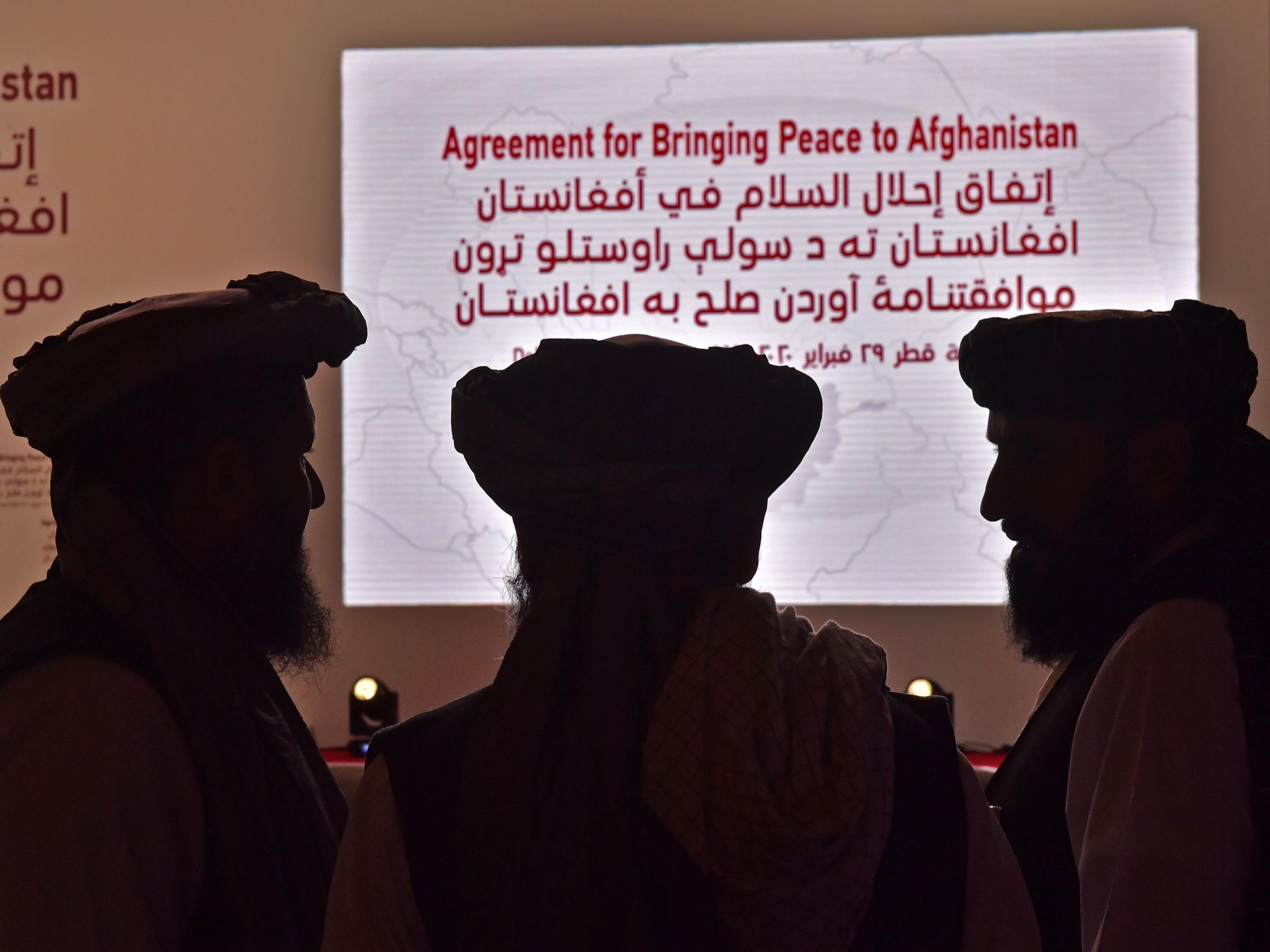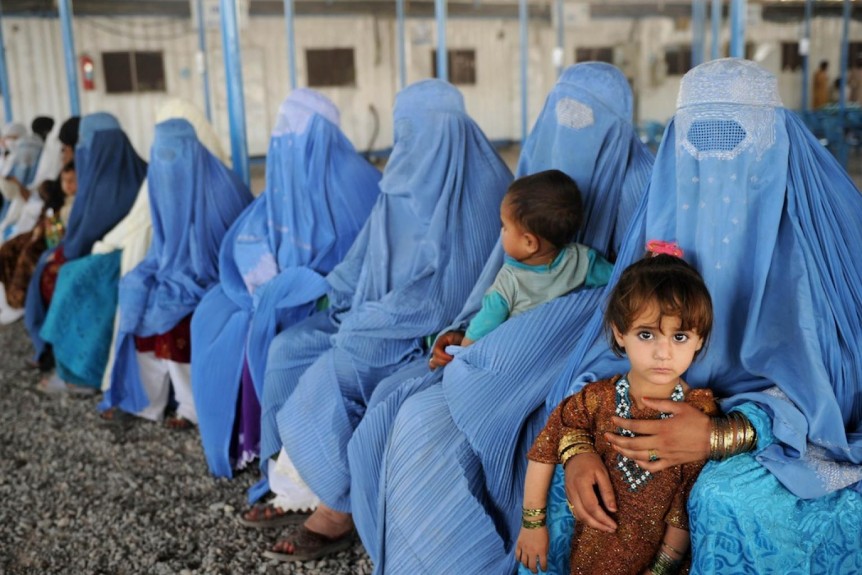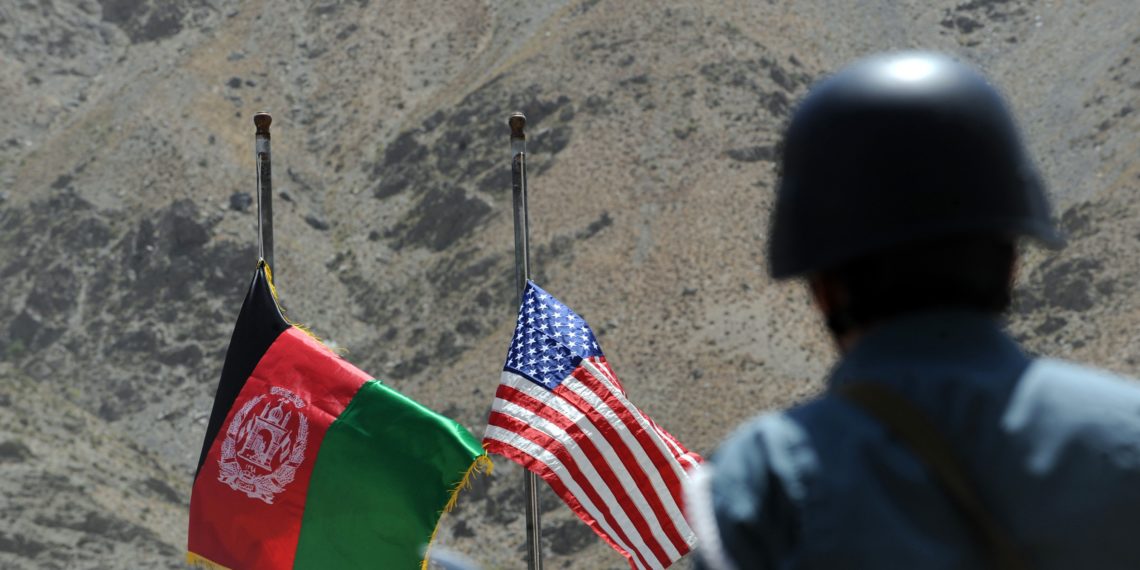In the wake of renewed violence just days after the singing of the US-Taliban peace deal, Afghanistan finds itself at crossroads. Will the nation dissolve into civil war and repeat the horrors of the 1990s or establish durable peace, capture the potential of its impressive natural resources, and forge a brighter future?
Within just hours of the historic signing, disputes began over aspects of the deal that had not been fully fleshed out. And as of this writing, there is confusion over who exactly is the President of Afghanistan, with both Chief Executive Abdullah Abdullah and sitting President Ashraf Ghani holding presidential swearing-in ceremonies on March 9.
Talks With Taliban
The U.S.-Taliban talks were highly unusual from the start as they left out the elected Afghan government in Kabul. Taliban leaders insisted that they would not recognize the central government in Kabul and would not enter into negotiations with them until all foreign troops have left Afghanistan. This condition raises alarm bells over the possibility of another devastating civil war once U.S. forces leave.
Many balked at the fact that the U.S. was engaging with the Taliban at all. On March 3, President Donald Trump even had a direct conversation with Taliban negotiator Mullah Baradar Akhund, the first phone call ever between a U.S. leader and the Taliban. There is clearly a strong political will on Washington’s part to get some sort of deal to hold and allow a progression to intra-Afghan talks.

Interestingly, the U.S. State Department has never designated the Afghan Taliban as an official terrorist organization, unlike the organization’s Pakistani wing. The most-cited reason is that America wanted to preserve diplomatic channels and the ability to talk directly with the Taliban, which would have been far more difficult had they been designated a terrorist organization.
Taliban Control
Despite 18 years of U.S. and Afghan forces fighting the Taliban for control in Afghanistan, there can be no doubt that the fight for the provinces is far from over.
The Taliban has an increasingly organized but disjointed “shadow government” operating in areas at distance from Kabul, where they govern the lives of the millions of Afghans living under their rule. While exact estimates about the extent of Taliban control vary by the day, the organization probably controls between 50 and 70 percent of the country.
In the nearly 18 years of war in Afghanistan, the US has spend more than $2 trillion. More than 2,400 American soldiers and more than 38,000 Afghan civilians have died. And yes today, the Taliban control or contest more territory than in 2001.
(1/2) pic.twitter.com/OvpIidfjlU
— Fidato (@tequieremos) March 1, 2020
This creates a situation ripe for extensive power battles and continued armed conflict once U.S. forces withdraw, particularly in mineral-rich areas.
Back to Civil War?
A return to an all-embracing civil war, such as in the mid-1990s, is unlikely, as is a complete Taliban takeover of the central government in Kabul.
Afghan forces and institutions are much stronger and more organized than they were 25 years ago. However, some degree of vying for control with the Taliban is expected. Whether the Taliban will allow women, minorities (such as the Hazaras, a small ethnic minority massacred by the extremists in 1998), and individual rights in Taliban-controlled areas is a critical question.
Hard-Fought Progress
The hard-fought progress that has been made in Afghanistan must not be forgotten.
The economy grew 2.9 percent in 2018, largely due to new trade corridors for agricultural products under Ghani. The economy is expected to reach 3.3 percent growth in 2020, telecommunications developments have been comprehensive, and life expectancy has increased from 50.3 in 1990 to 64.5 in 2018, notwithstanding the conflict.
One of the greatest fears for Afghans is the fate of societal gains women have made over the past 18 years. For example, Kabul University now offers a Master’s Programme in Gender and Women Studies that trains students to “recognize structural inequality, gender, and power dynamics in society.”

Afghan women have made undeniable progress since the early 2000s. They have enrolled in schools and universities in impressive numbers. During elections last year, women secured 27 seats in Afghanistan’s 249-seat parliament. There is, however, still much work to be done in terms of education for girls, literacy, and health care.
Afghan women, who have the most to lose in a flawed peace deal or a deal gone wrong, have been distinctly absent from the negotiating tables. Afghan women and girls suffered greatly under the Taliban rule in the 1990s, and understandably fear what will happen once all foreign troops are gone.
Who Benefits From the Doha Deal?
There is no doubt that the U.S. negotiating team was anxious to finalize a deal with the Taliban to withdraw its troops. After witnessing too many U.S. troops being killed or maimed and with perceivable progress difficult to measure or rarely reported, conflict fatigue has set in for the American public.
The Doha deal will allow President Trump to show a concrete exit plan in an election year, regardless of what happens in Afghanistan afterward. The deal outlines the drawdown from around 13,000 to 8,600 troops within 135 days and all forces to leave in 14 months, leaving much uncertainty about what will come next.
According to the agreement, the U.S. will be out and the Afghans will have to determine their own fate. After so many years of armed conflict, trillions of dollars spent, thousands of lives lost, and some real progress made, a hasty withdrawal seems a terrible gamble to take. But sadly, as always, there are few good options in Afghanistan.
Disclaimer: The views and opinions expressed here are those of the author and do not necessarily reflect the editorial position of The Globe Post.






















